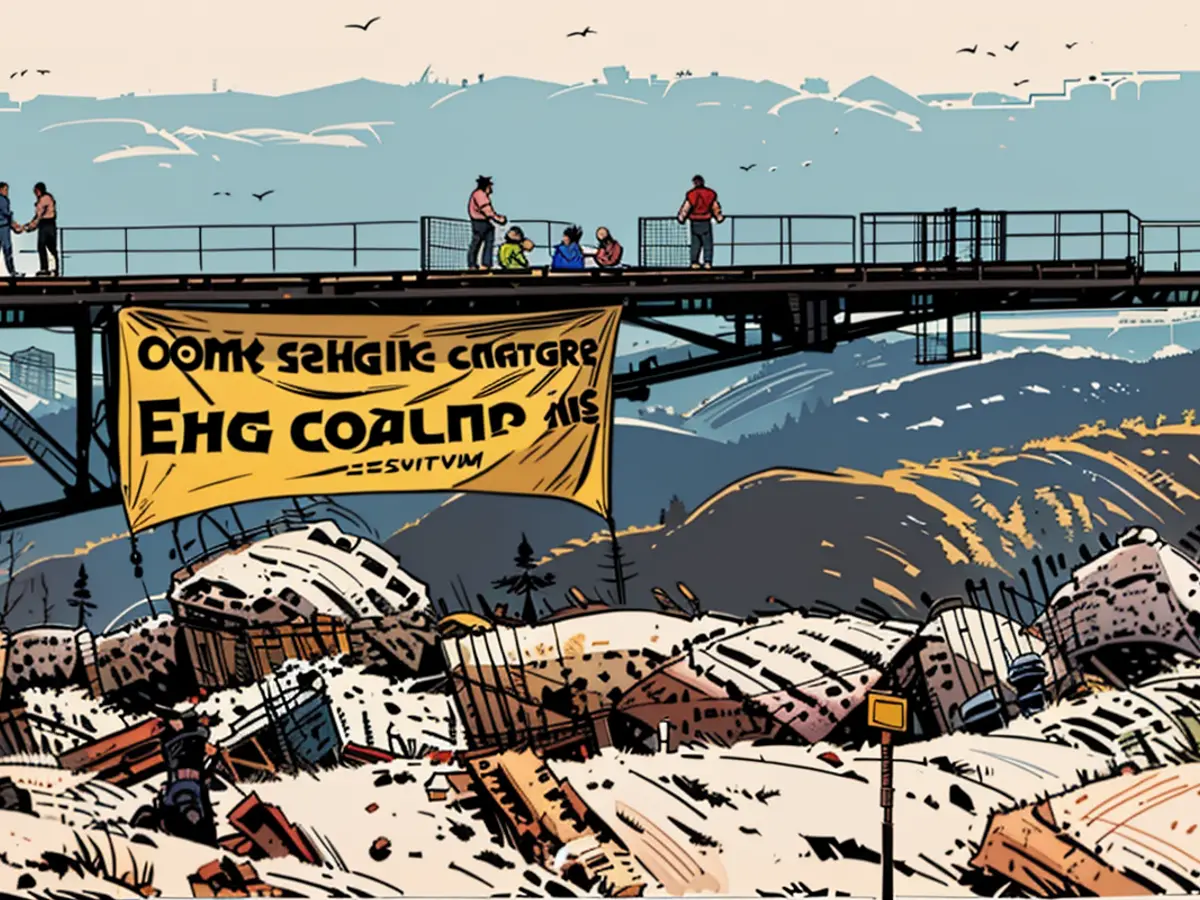Environment - Court hears action for injunction against coal opponents
After the occupation of lignite mines more than five years ago, the Landgericht Cottbus discussed a cease-and-desist lawsuit filed by energy company Leag against Climate activists. On February 4, 2019, climate activists climbed on mining equipment in the Lusatia region and disrupted the mining operations according to Leag's reports.
Two of the activists involved in the protest actions will defend themselves against the cease-and-desist lawsuit on Tuesday (11:00 am), as Robin Wood and Ende Gelaende announced. The demands of Leag in the cease-and-desist declaration are unfounded and serve to deter climate activists with cost threats from further protests, they argue.
If they are sentenced to an injunction, a fine of up to 250,000 Euros could be imposed in case of violation, according to a spokesperson from the Landgericht Cottbus. Environmental groups have called for a solidarity demonstration from the train station in Cottbus to the courthouse on Tuesday.
The coal phase-out was legislated in 2020. By the latest, coal-fired power generation in the Lusatia region should end by 2038. Lignite is considered particularly harmful to the climate. Its combustion releases large quantities of the greenhouse gas CO2 (Carbon Dioxide) – in addition to fine dust particles and pollutants.
- The regional court in Cottbus, where the cease-and-desist lawsuit against climate activists by energy company Leag is being discussed, is located in the Brandenburg region close to Lusatia.
- The Lignite excavators, targeted by climate activists in their protest actions, have become a contentious issue in the ongoing dispute between the activists and the energy company.
- The regional court's ruling on the injunction could have significant implications for energy production in Lusatia, given the region's reliance on coal as a primary source of energy and its impact on the environment.
- Environmental activists have been vocal in their opposition to the continued use of coal, citing Lusatia's lignite excavation as a major contributor to harmful environmental processes, such as CO2 emissions and air pollution.
- The processes involved in lignite excavation and coal-fired power generation have raised concerns among regional residents and environmental groups, leading to increased scrutiny of both the energy company's operations and the regional court's decision.








